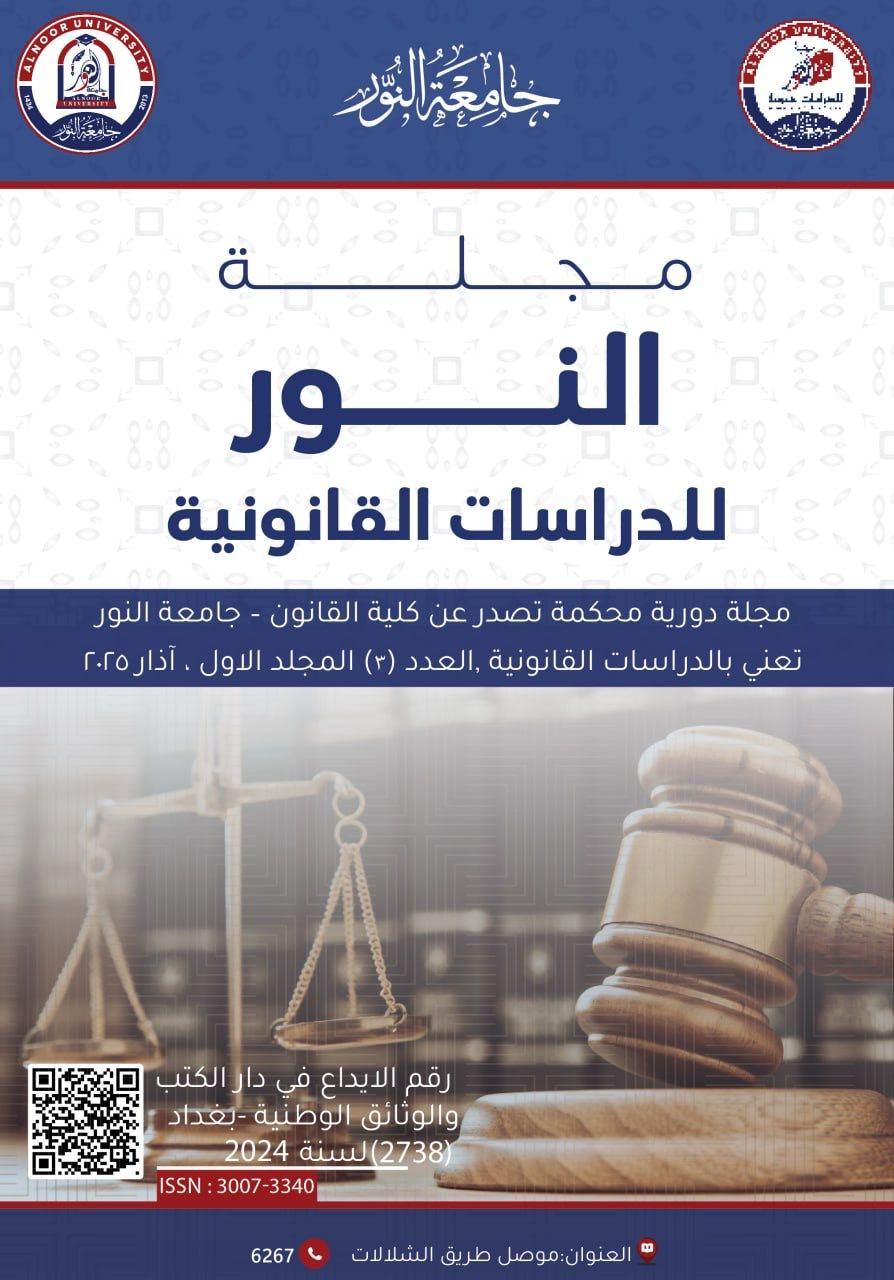Abstract
Contracts are the primary tool for achieving economic development in society, with the will of the parties playing a crucial role in organizing the obligations arising from them. However, the principle of freedom of contract is no longer absolute, as state intervention has increased through legislative measures that impose restrictions on the parties' autonomy. Therefore understanding the basis of the binding nature of contracts and the impact of these legislative restrictions during the formation and execution stages is essential. This study highlights this issue and recommends that the Iraqi legislator add a legal provision stating that "the text of the law is the basis of the binding nature of the contract," in order to clarify and eliminate any ambiguity surrounding this matter.
Abstract
يعد العقد الأداةَ الرئيسية في تحقيق التنمية الاقتصادية في المجتمع، وكان للإرادة الدور المطلق في تنظيم جميع الالتزامات التي تنشأ عنه، إلا ان مبدأ سلطان الارادة لم يعد مطلقا، بل ازداد تدخل الدولة في دائرة العقد من خلال النصوص التشريعية والتي أصبحت قيودا تفرض على ارادة المتعاقدين، كما أن أساس القوة الملزمة للعقد له اهمية كبيرة لمعرفة مدى الزامية تلك القيود التشريعية، وتسلط هذه الدراسة الضوء على بيان اساس القوة الملزمة للعقد وكذلك القيود التشريعية التي فرضها المشرع في مرحلتي تكوين وتنفيذ العقد، وتوصي هذه الدراسة المشرع العراقي الى اضافة مادة قانونية تنص على(نص القانون هو اساس القوة الملزمة للعقد) وذلك لإنهاء الخلاف حول اساس القوة الملزمة للعقد.
Keywords
قيود، تشريع،ارادة،تعاقد
